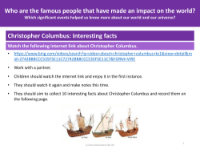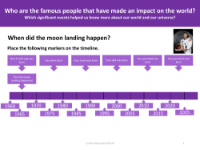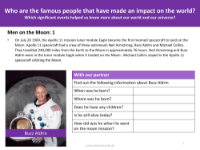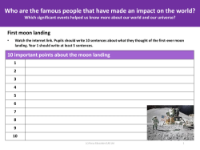Christopher Columbus v Moon landing - Writing task
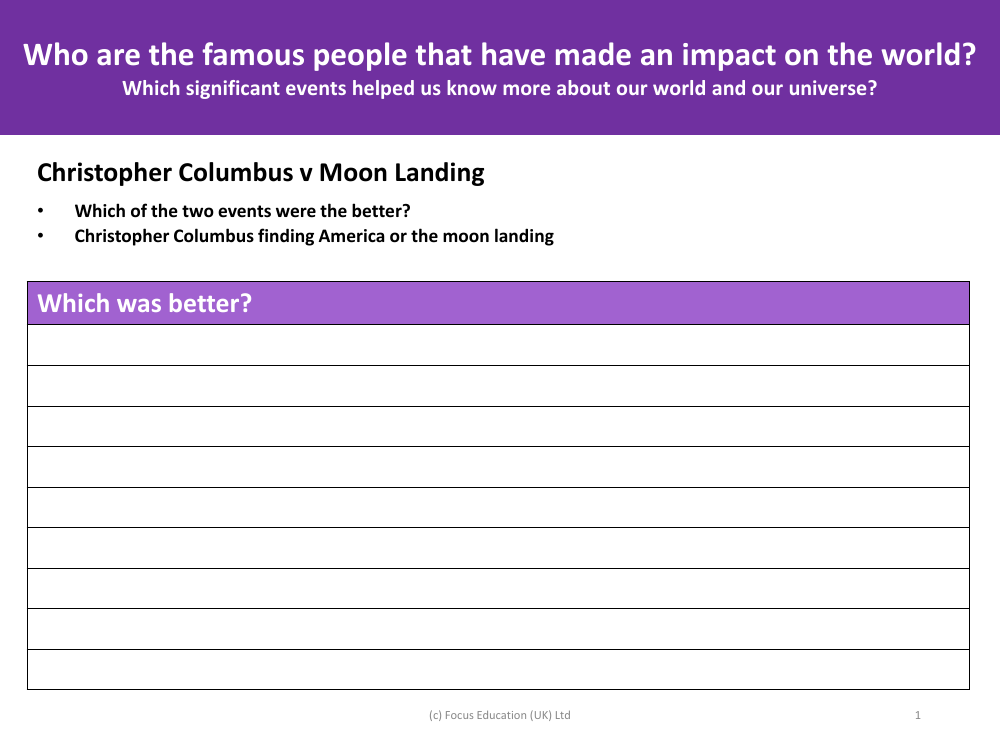
History Resource Description
When comparing the historical significance of Christopher Columbus's discovery of America to the moon landing, one must consider the impact of each event on the world. Both events are cornerstones of human exploration and have left indelible marks on our collective history. Christopher Columbus's transatlantic voyages in the late 15th century opened up the New World to European exploration and colonization, reshaping the global landscape in profound ways. This encounter between the Old and New Worlds had far-reaching effects on the history, culture, economics, and ecosystems of the planet.
On the other hand, the moon landing, achieved by the Apollo 11 mission in 1969, represents a pinnacle of human technological achievement and marks the first time humans set foot on a celestial body other than Earth. This monumental event expanded our understanding of space and spurred advancements in science and technology. It also symbolized the potential for human ingenuity and cooperation in the pursuit of extraordinary goals. When considering famous individuals who have made a significant impact, the astronauts Neil Armstrong and Buzz Aldrin, along with Columbus, are undoubtedly among those who have helped us to know more about our world and our universe. The question of which event was 'better' is subjective and depends on the criteria used—be it the scale of discovery, the technological innovation, or the lasting consequences on human society.



